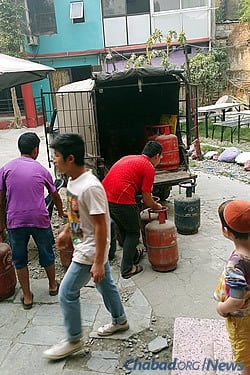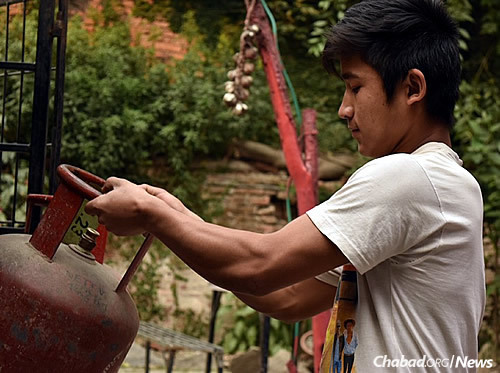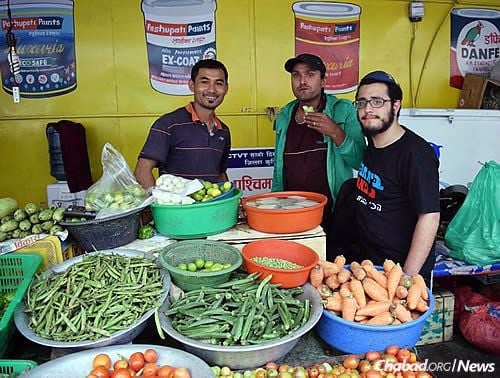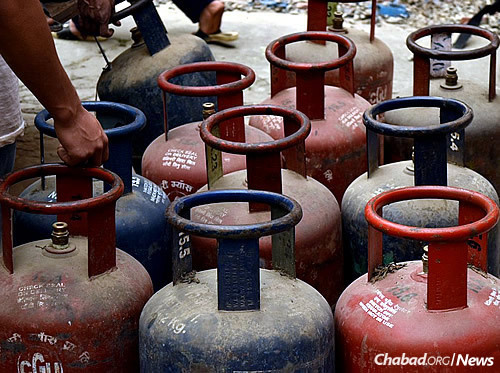With just days until the start of Passover, final preparations are being made for both the world’s largest and the world’s highest seders. Since the 1990s, Chabad has been hosting a giant seder in Katmandu, Nepal, which is expected to attract as many as 1,500 participants this year—mainly young Israeli backpackers. (A second seder is conducted nearby for English speakers).
Due to security concerns, Chabad in Nepal, led by Rabbi Chezki and Chani Lifshitz, has determined not to announce the location of the seders until 24 hours before the start of the holiday.
However, with social media and the famed “Israeli grapevine,” they are confident that word will spread quickly enough so that everyone who wants to attend will know where to go.
In addition to a third seder in the city of Pokhara, they’re also hosting a seder in Manang, the tiny mountain village where hikers tend to stop to acclimate to higher altitudes before continuing on the famed Annapurna trek. The rabbi estimates that there will be as many as 130 participants at that Passover seder, believed to be the highest in the world at 11,545 feet above sea level.
The logistics of bringing kosher-for-Passover supplies into a country with shaky infrastructure have long presented challenges. There was the Nepalese coup one year that ended almost to the day that the largest seder in the world began. In 2008, shipments of food got stuck at the Indian border and arrived within hours to spare. In 2014, supplies had to be brought into the country one suitcase at a time when the Israeli foreign ministry went on strike, thus stalling foodstuffs coming out of Israel.

This year, a trade embargo from India and severe traffic snarls on the Indian border have plunged Nepal into a gas shortage, leaving the landlocked country thirsting for petroleum used for cooking purposes.
In order to maintain its ongoing kosher restaurant and prepare food for the thousands of guests expected for the main seder, the Lifshitzes have been purchasing large quantities from the private sector.
The rabbi is quick to point out that such headaches pale in comparison to the joy and spiritual awakening that thousands of Israeli tourists experience at Passover events. The majority of participants are young men and women who have finished mandatory military service in Israel, and are traveling the world.
At least for now, there will be plenty to eat and drink. The rabbi reports that he has already locally produced 900 litres of kosher-for-Passover wine, and that 500 kilos of matzah have been delivered.
Still, 17 years of living and working in Nepal have taught the husband-and-wife team to expect the unexpected. When asked how the seder supplies will be transported to Menang, the rabbi notes that a road exists, though it’s often blocked by landslides.
“It’s too early to know,” acknowledges Lifshitz. “Every year is something else. Maybe we’ll go by helicopter, maybe motorcycle, maybe horseback. It’s always different, depending on the conditions. But one thing we’re sure of: With G‑d’s help, it will happen.”











Start a Discussion